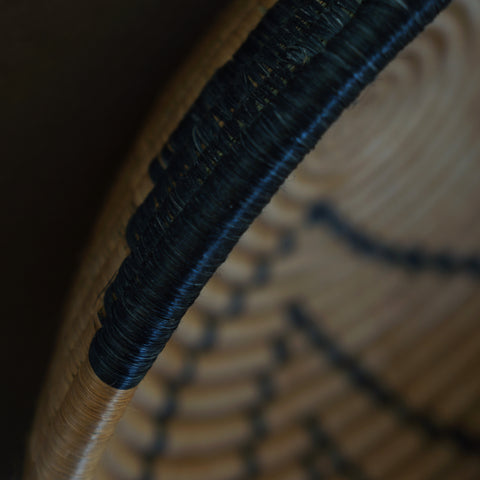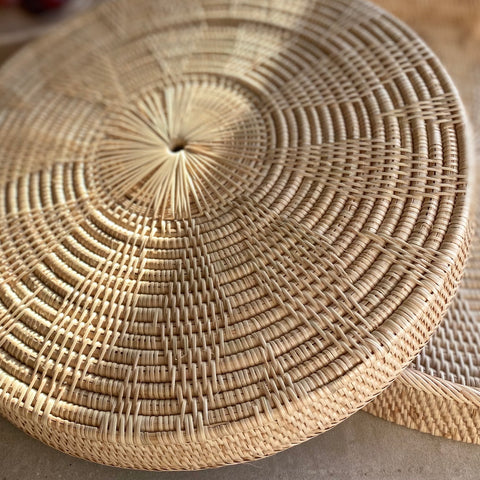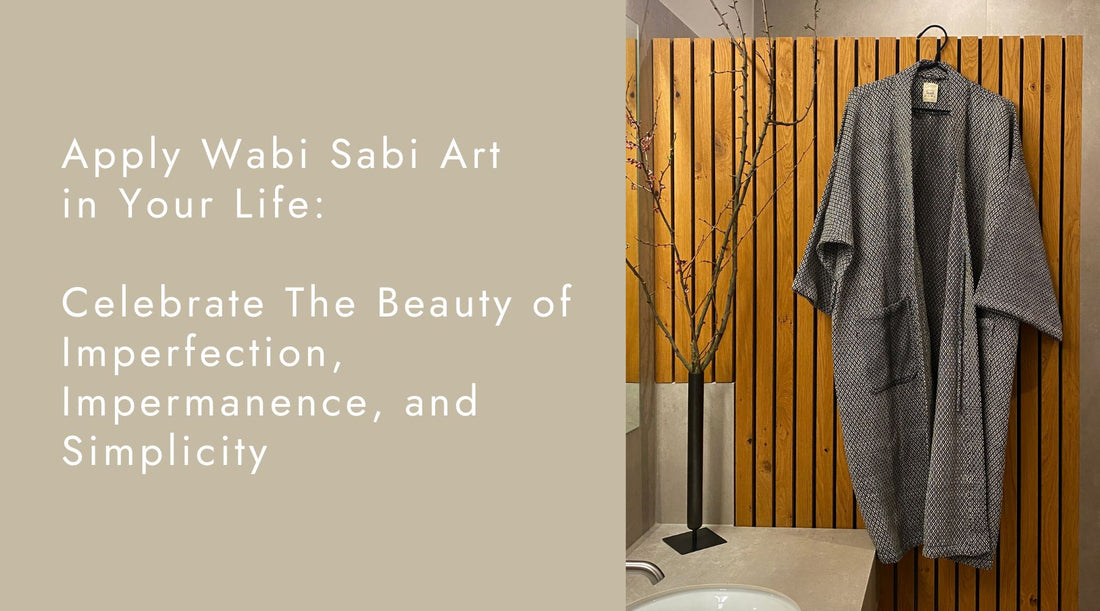I hope this blog finds you well, and that you've enjoyed a delightful summer break. As autumn approaches and leaves begin to fall, I thought it's the perfect moment to introduce the world of Wabi-Sabi aesthetics.
Wabi Sabi is an aesthetic that celebrates the beauty of imperfection, impermanence, and simplicity. It is a philosophy of Japan, my native country, deeply rooted in traditional craftsmanship and is increasingly gaining popularity in the art world.
The Essence of Wabi Sabi

Wabi-sabi is a blend of two distinct Japanese words. "Wabi" conveys the beauty found in simplicity, humility, and the rustic. It celebrates the elegance of the unrefined, recognising the value in things that are unpretentious and imperfect. "Sabi," on the other hand, is a concept that embodies the beauty that comes with the passage of time. It's the patina on an antique vase, the weathered wooden beams of an old cottage, or a faded rattan basket. Together, wabi-sabi is a celebration of the beauty of imperfection and the transience of life. In Japanese, we call those characteristics “Aji-ga-aru”, which literally means it has a taste.
Traditional Crafts and Wabi Sabi

Traditional crafts are inherently infused with wabi-sabi principles. In the world of Kaikô's handcrafted basketry, for example, you embark on a journey of authenticity, where the skilled hands of artisans have woven stories into every thread. Unlike the mass-produced baskets that adhere to a strict, unyielding uniformity, these handcrafted marvels bear the exquisite touch of human craftsmanship. Their patterns, though sometimes slightly uneven and not rigorously straight like their factory-made counterparts, represent an artistic canvas where beauty thrives in imperfection.
Yet, it's precisely within these variations and subtle deviations that the magic unfolds. To truly appreciate these elements, one must possess a refined sensibility, a cultivated sense that can discern the beauty in the hand's gentle sway. It's in these "imperfections" that we encounter the essence of traditional craftsmanship, the heartfelt connection to the artisans who, through their meticulous labour, have transformed simple threads into timeless treasures.
Ethically and naturally handcrafted items age like fine wine, and wear their history with grace, showing the gentle marks of time through wear and fading. They become vessels of the essence of "sabi," imbued with stories that have unfolded over the years. Interestingly, mass-produced items fail to replicate this ageing journey.
Wabi Sabi as a Way of Life
Beyond the realm of traditional crafts, I believe that wabi-sabi offers a philosophy for living. It encourages us to find contentment in simplicity, to embrace the beauty in the ordinary, and to cherish the fleeting moments that make up our lives. It invites us to let go of our relentless pursuit of perfection and instead find joy in the unique and the imperfect.
In a world where mass production often prioritises speed, uniformity and flawlessness, traditional crafts and the concept of wabi-sabi remind us to slow down, appreciate the artistry of imperfection and cultural diversity, and savour the beauty of life's fleeting moments. It teaches us that there is profound wisdom and elegance in the simple, the weathered, and the unrefined—a lesson worth celebrating and integrating into our lives.

Applying Wabi Sabi in Your Life
Now with the power of traditional crafts, you can apply its principles in your own life:
- Simplicity: Embrace minimalism and remove unnecessary clutter from your surroundings.
- Imperfection: Appreciate the beauty in imperfections and understand that they tell a unique story.
- Nature: Spend time in nature and observe its ever-changing beauty. Appreciate naturally and ethically-handmade pieces in your space.
- Mindfulness: Practice mindfulness to be present in the moment and appreciate the beauty around you.
I hope that our collections make you feel peaceful, calm and compassionate.
Thank you for being a part of this extraordinary journey with Kaikô. I hope you have a nice day.
Kana, Founder of Kaikô

